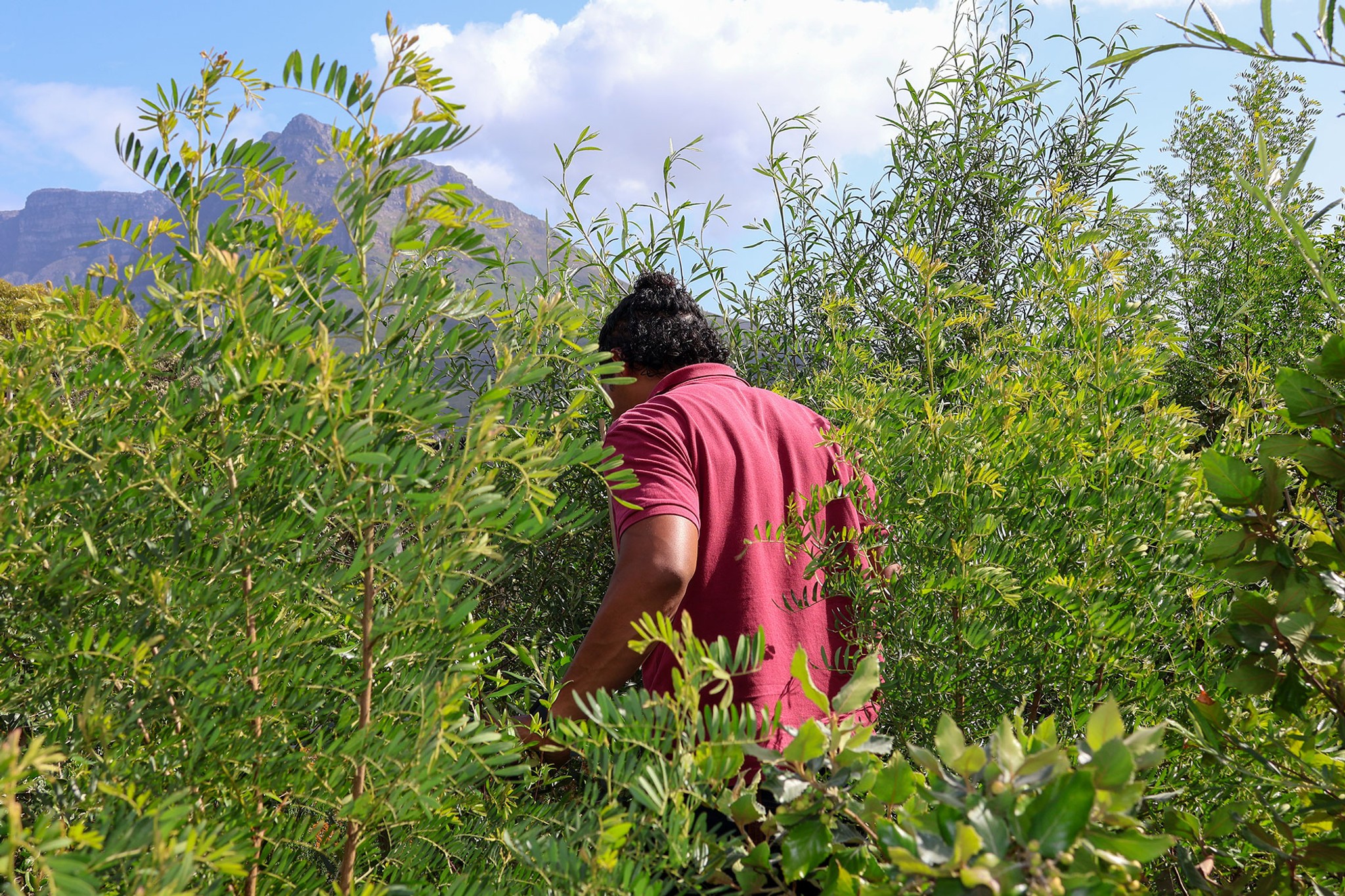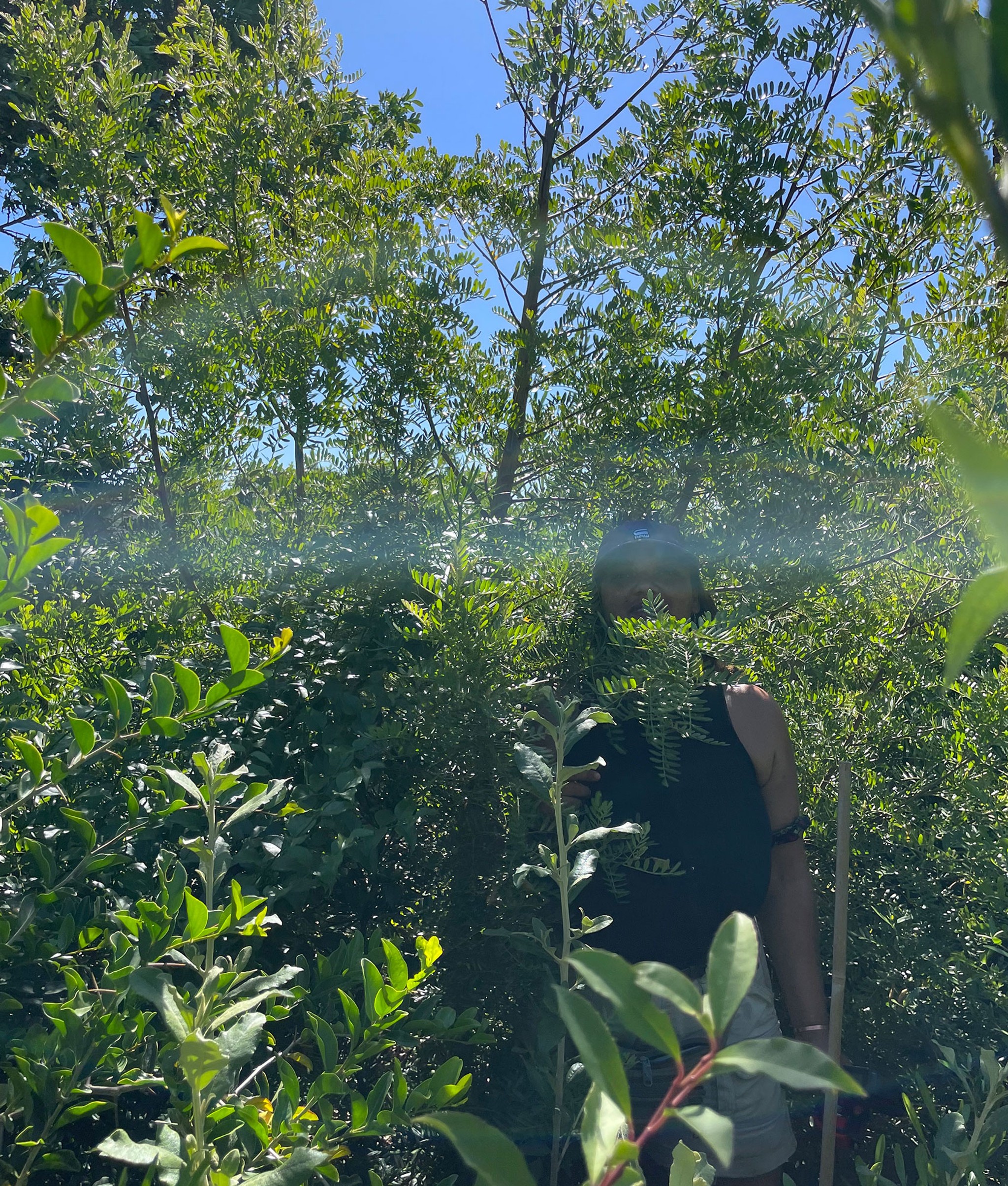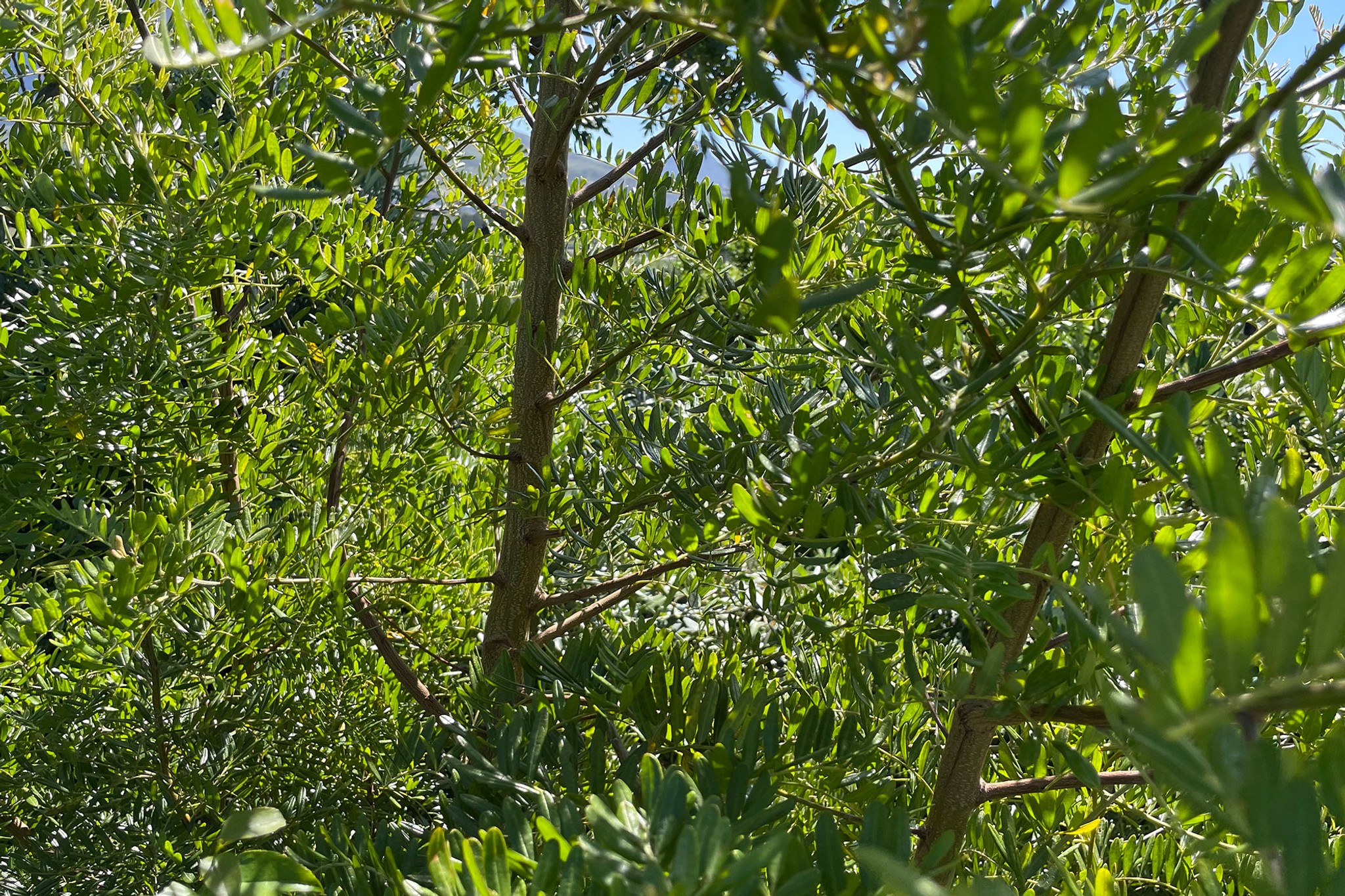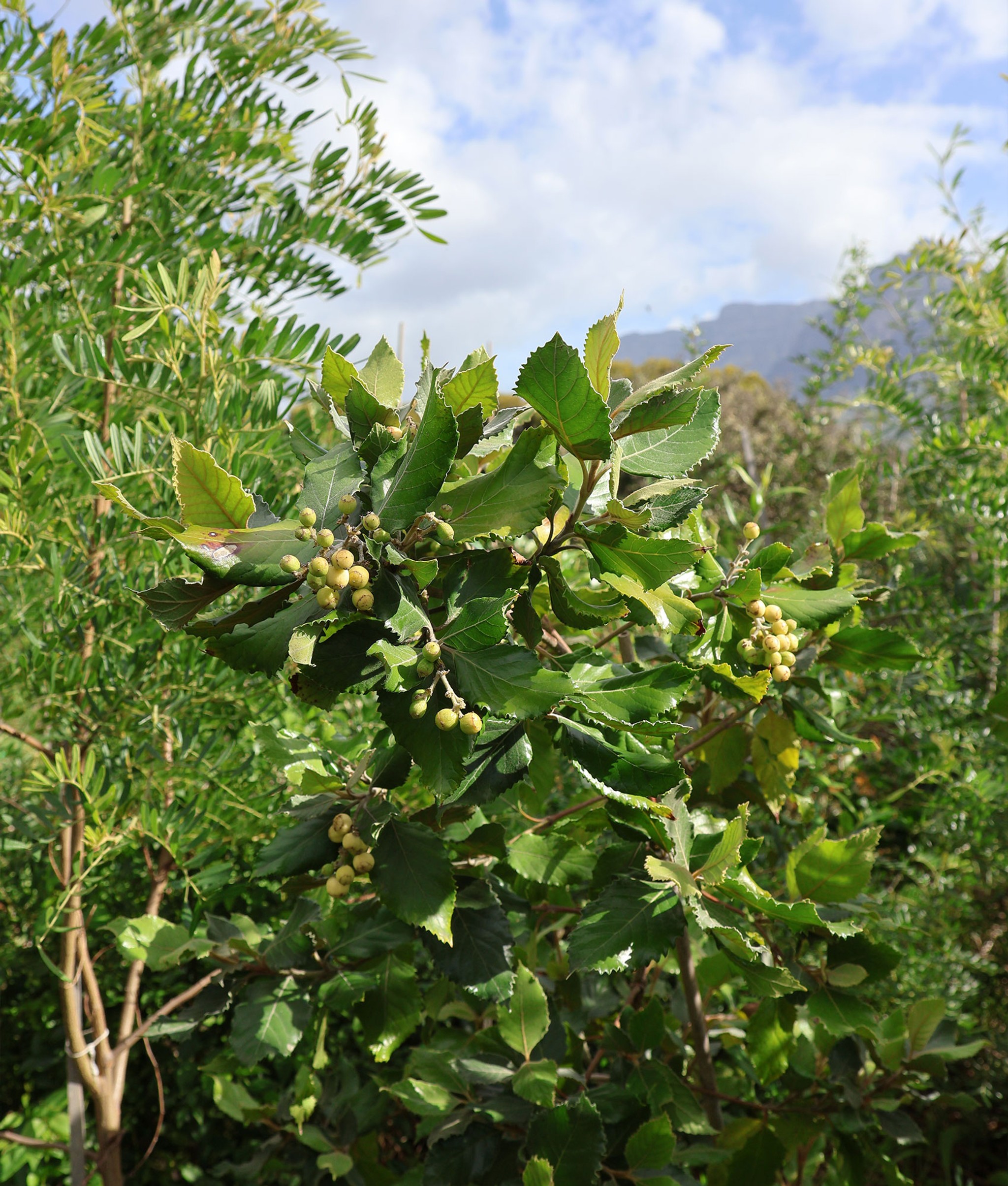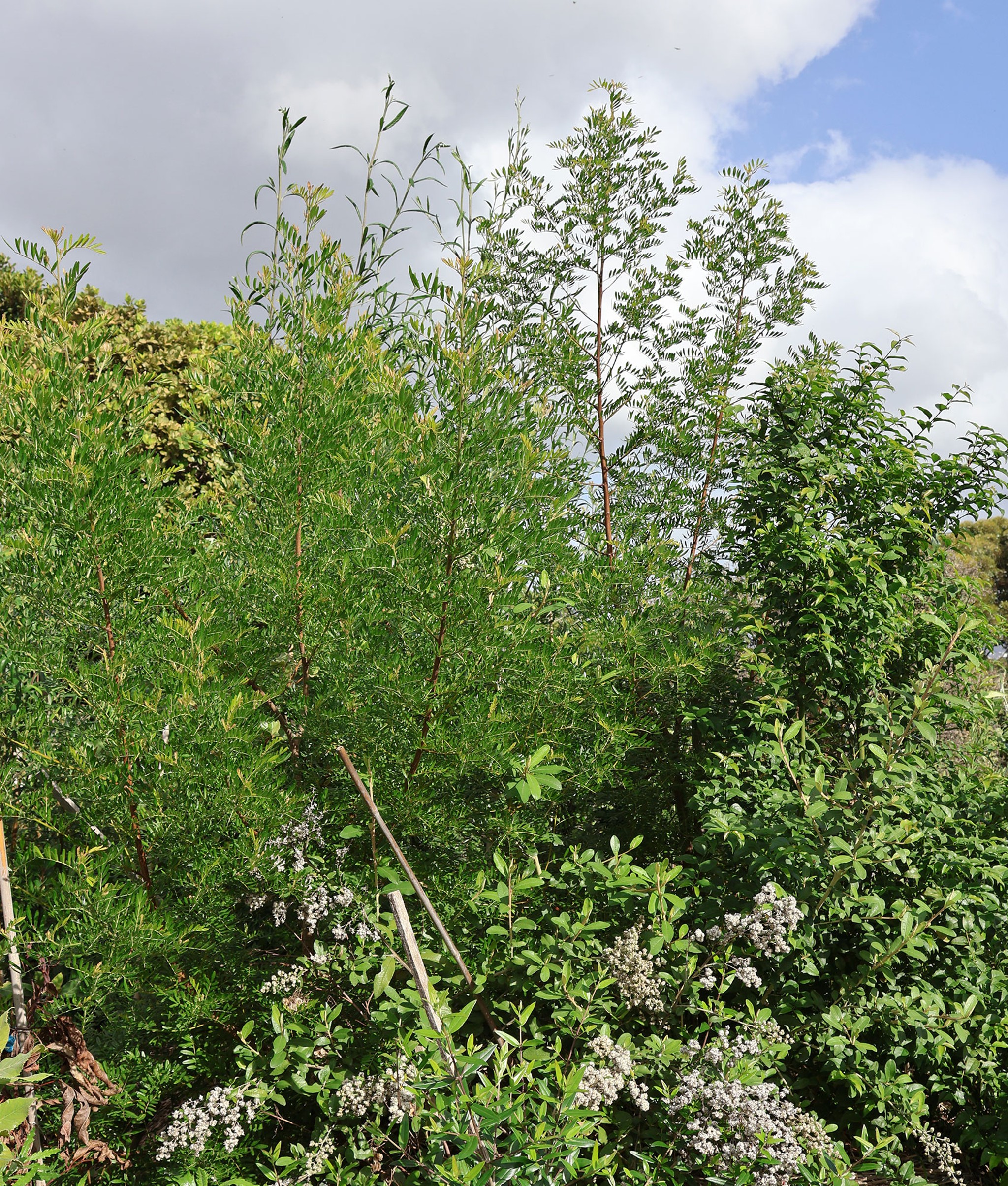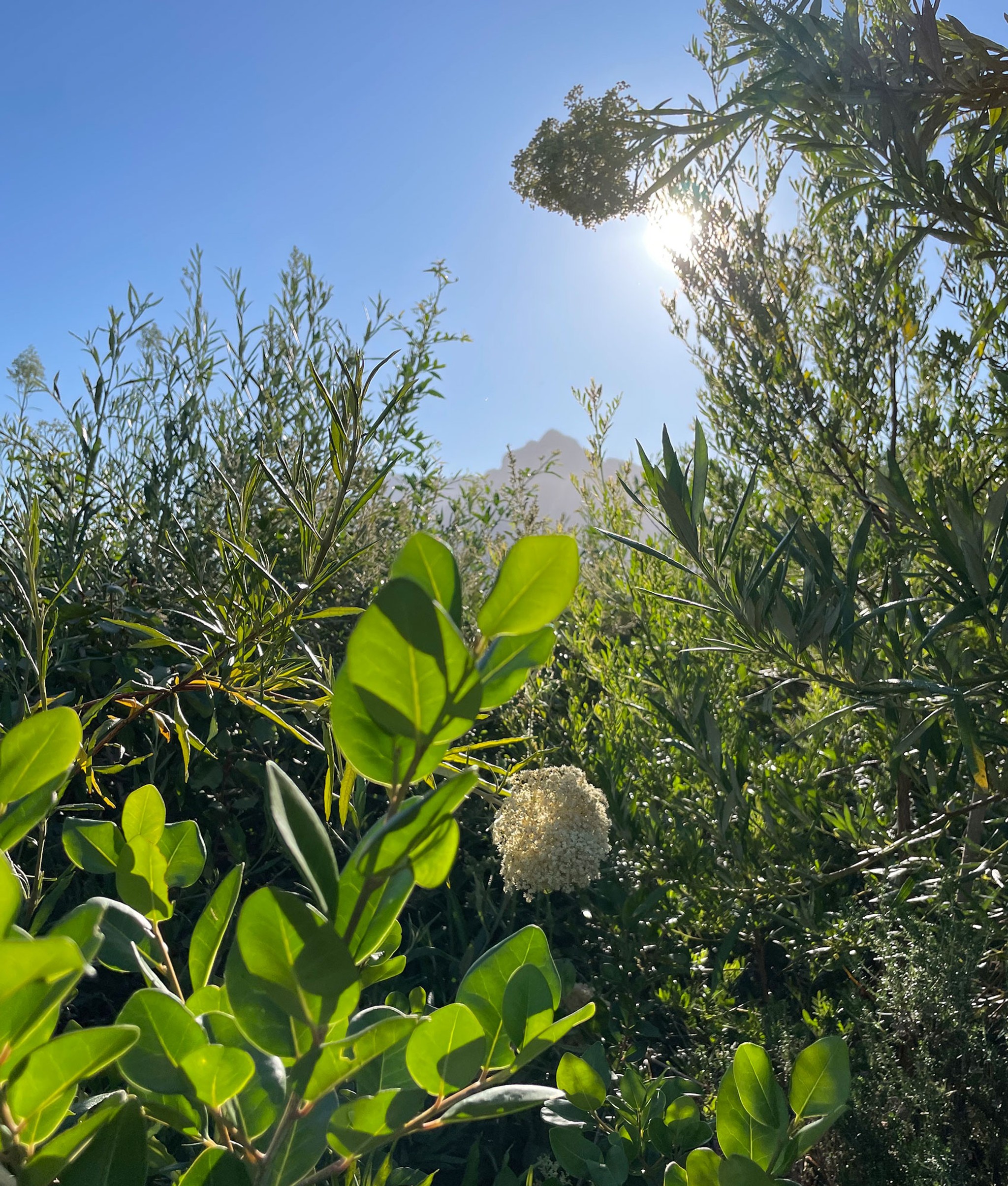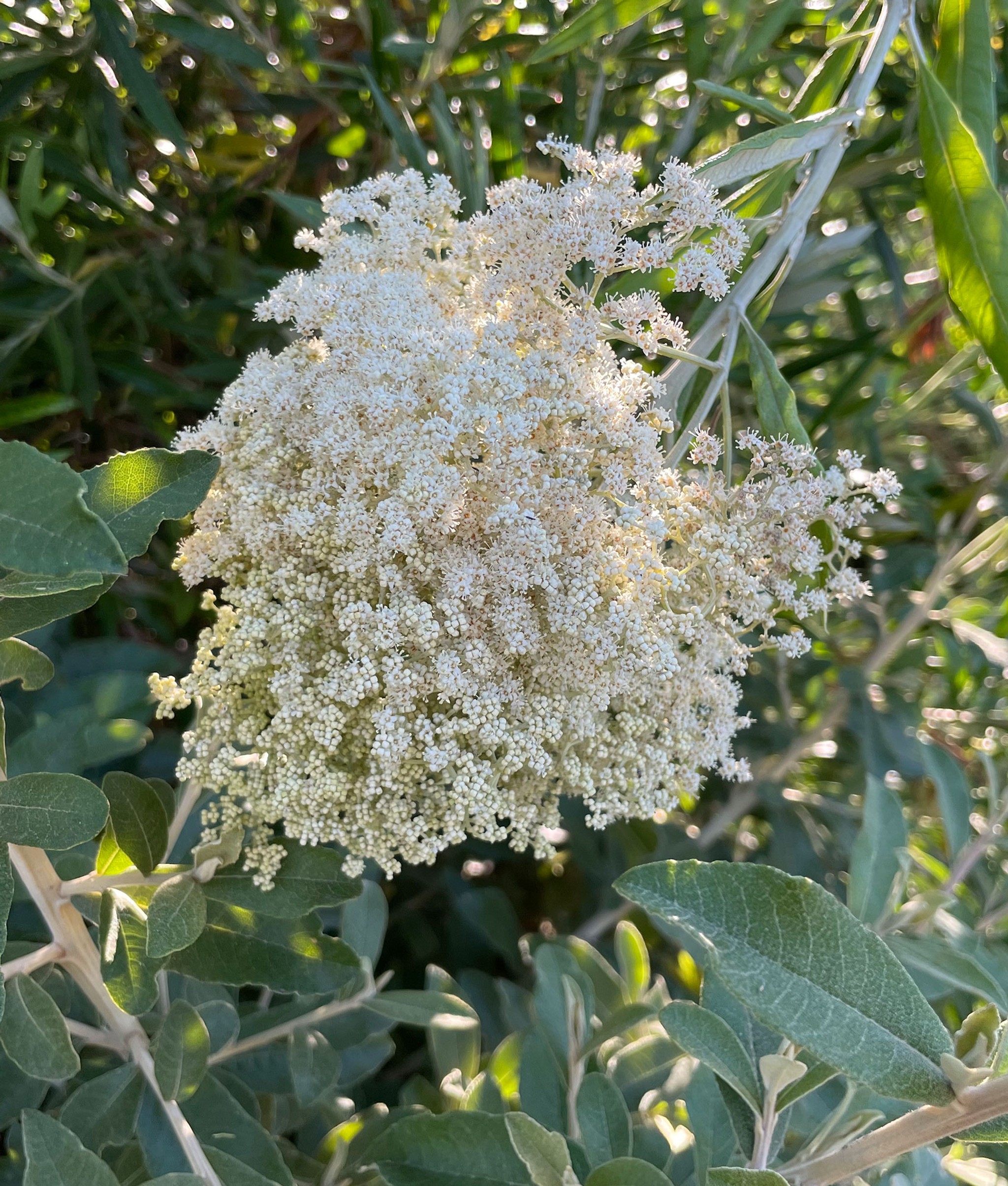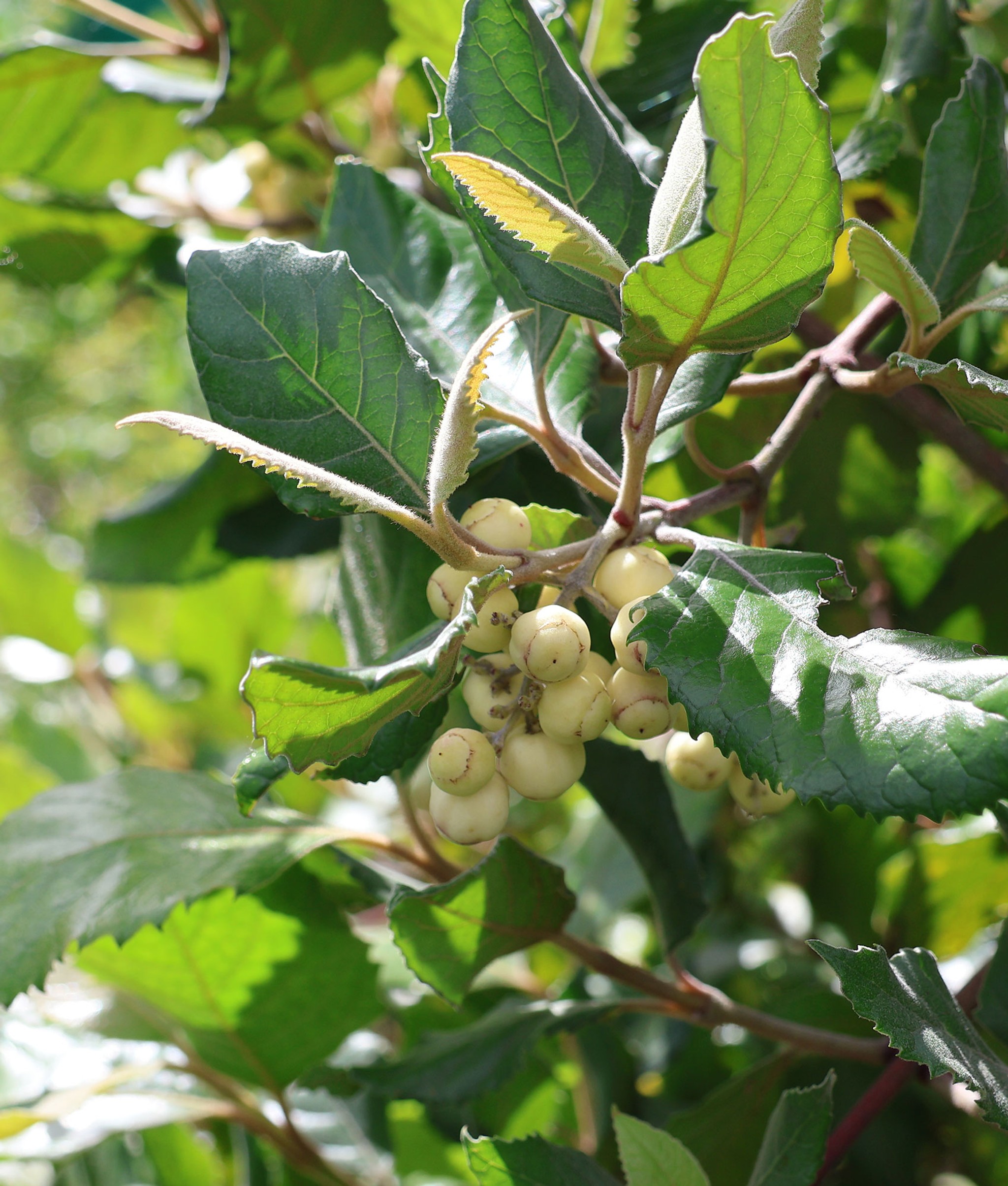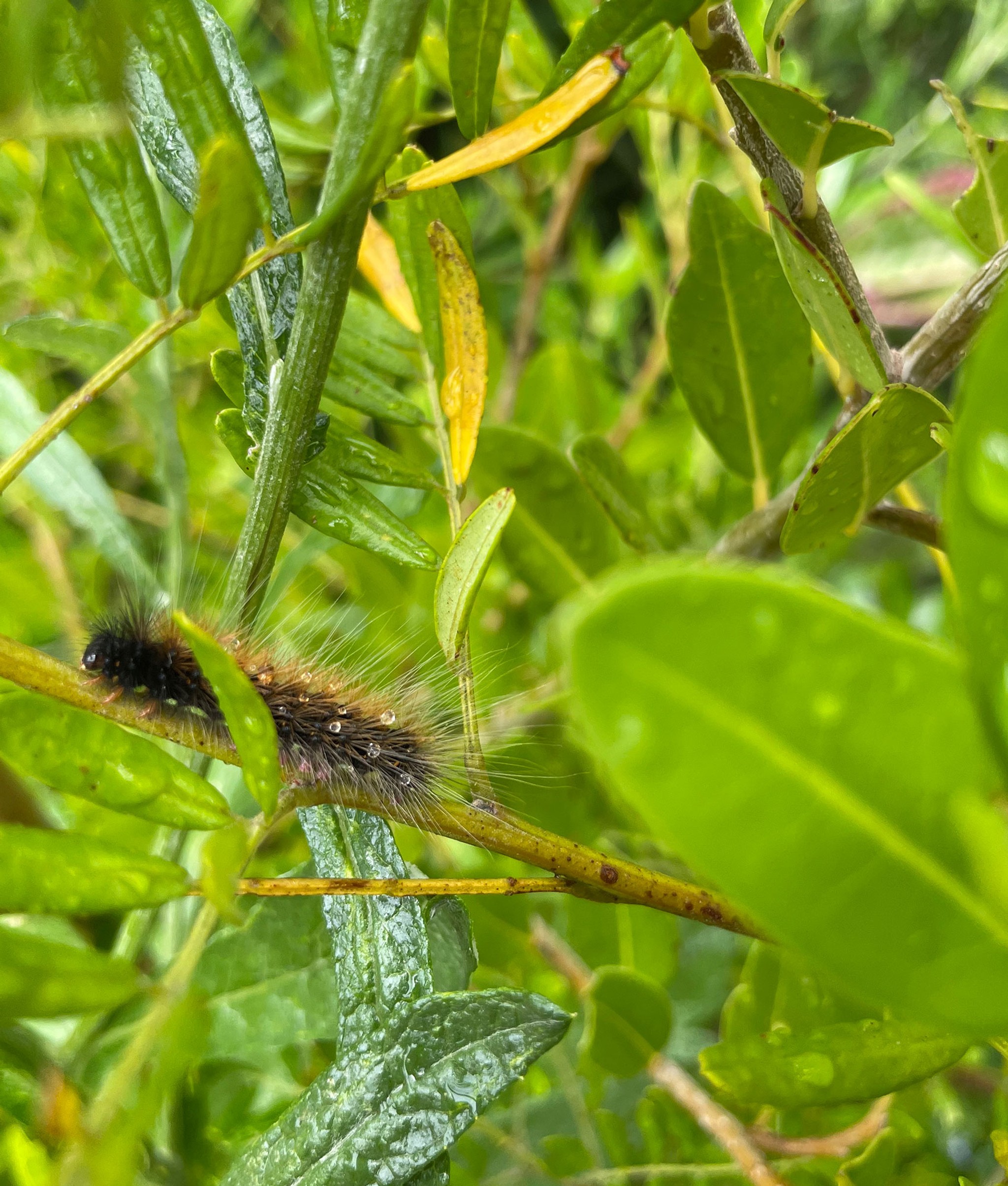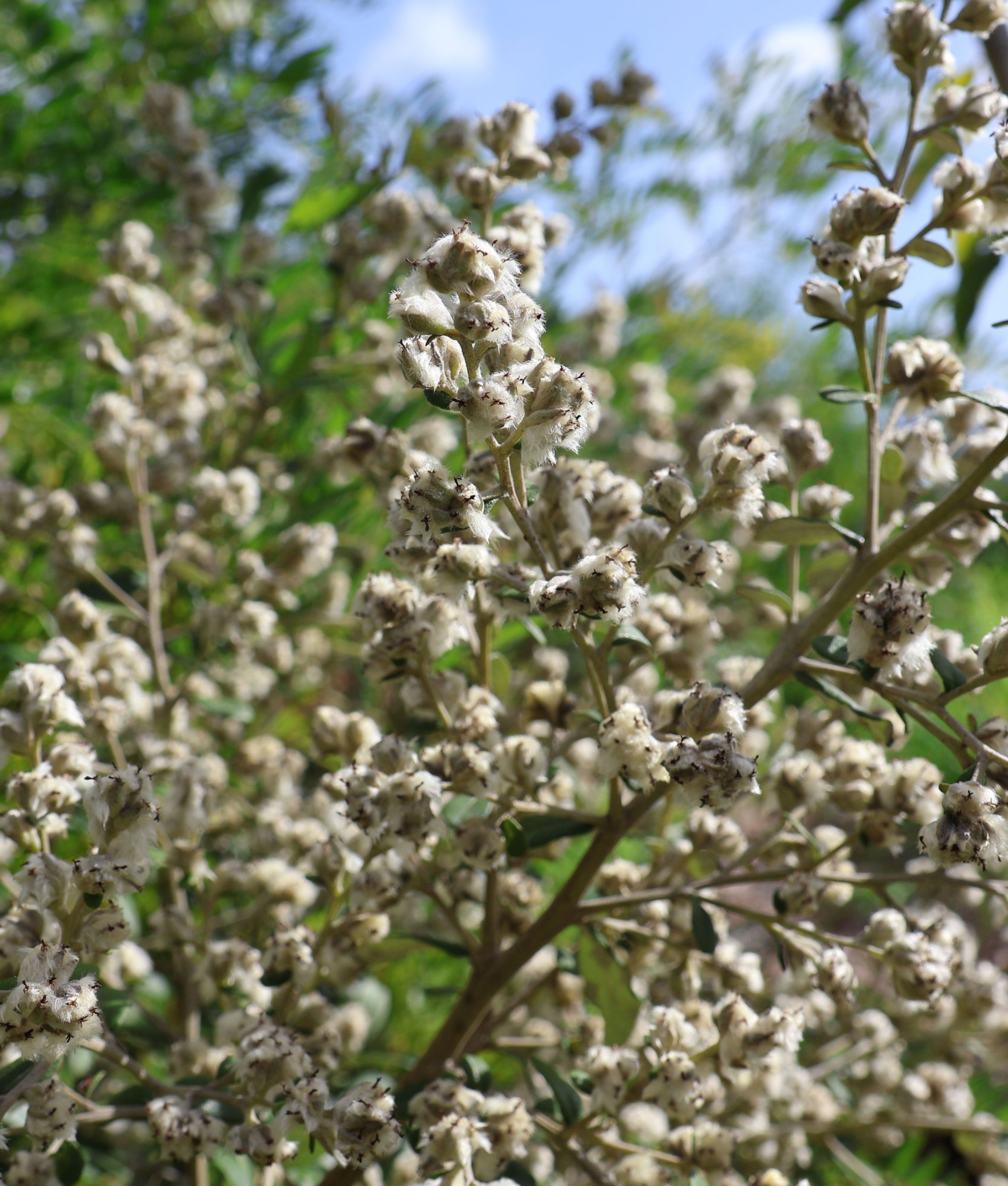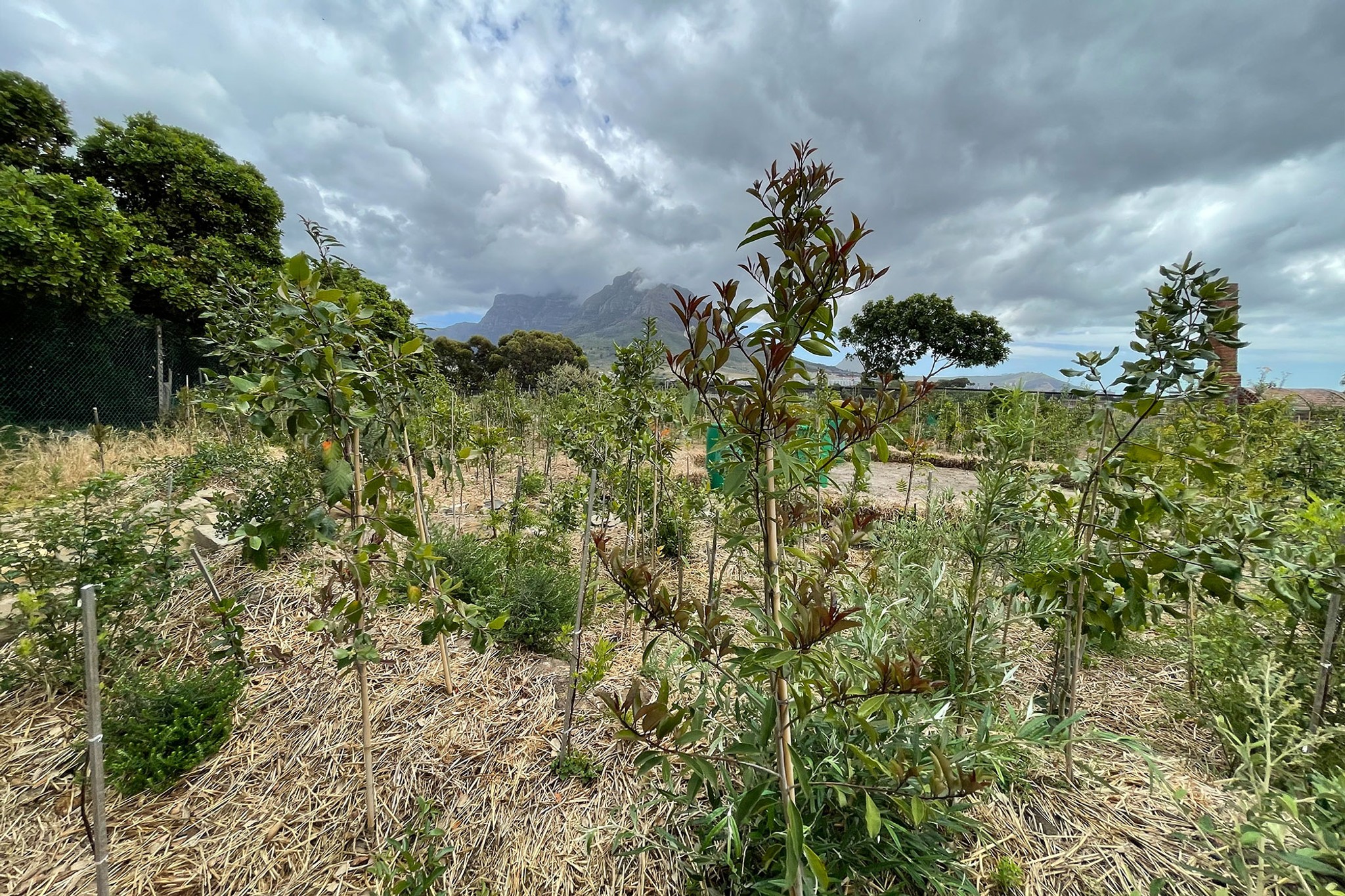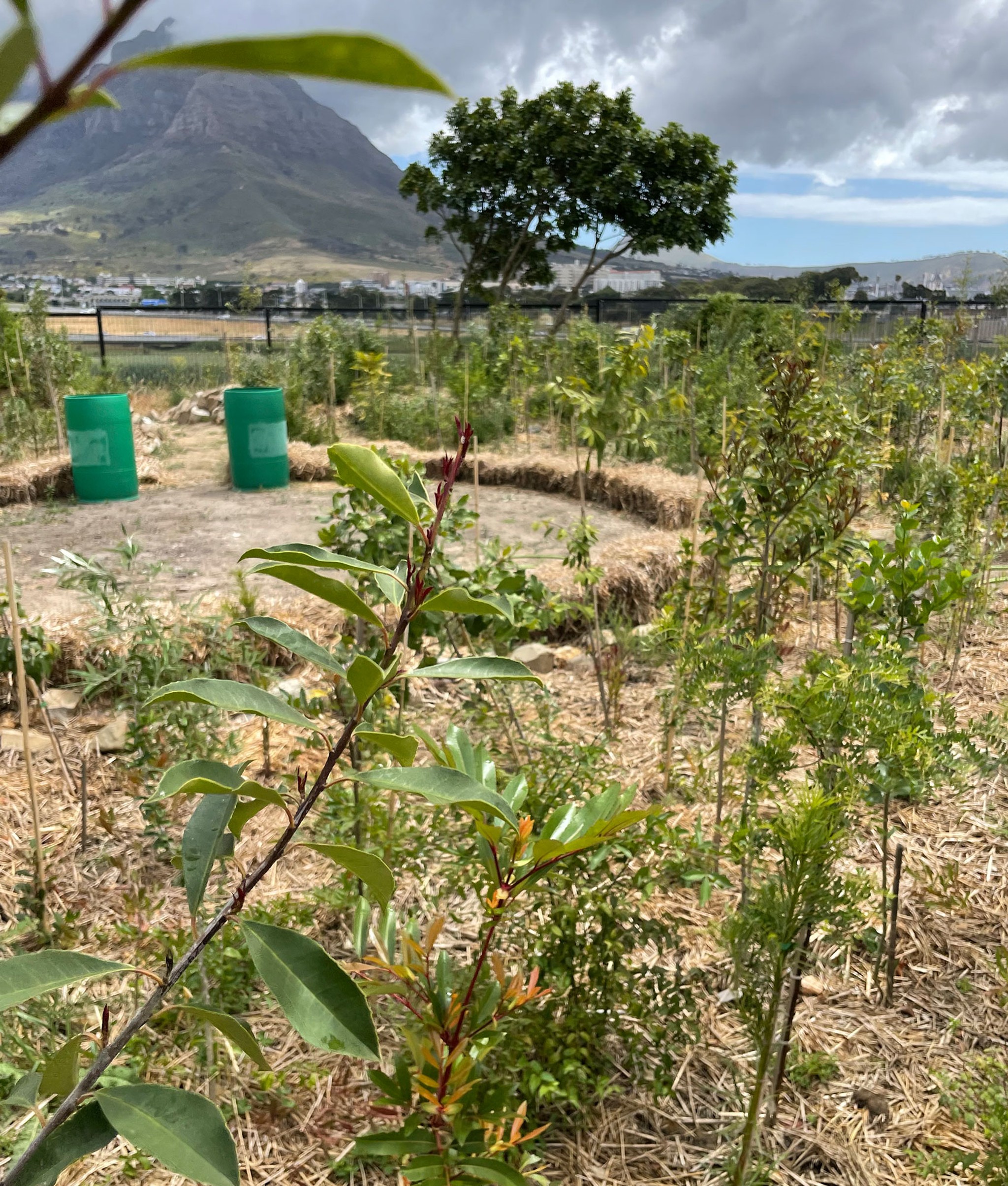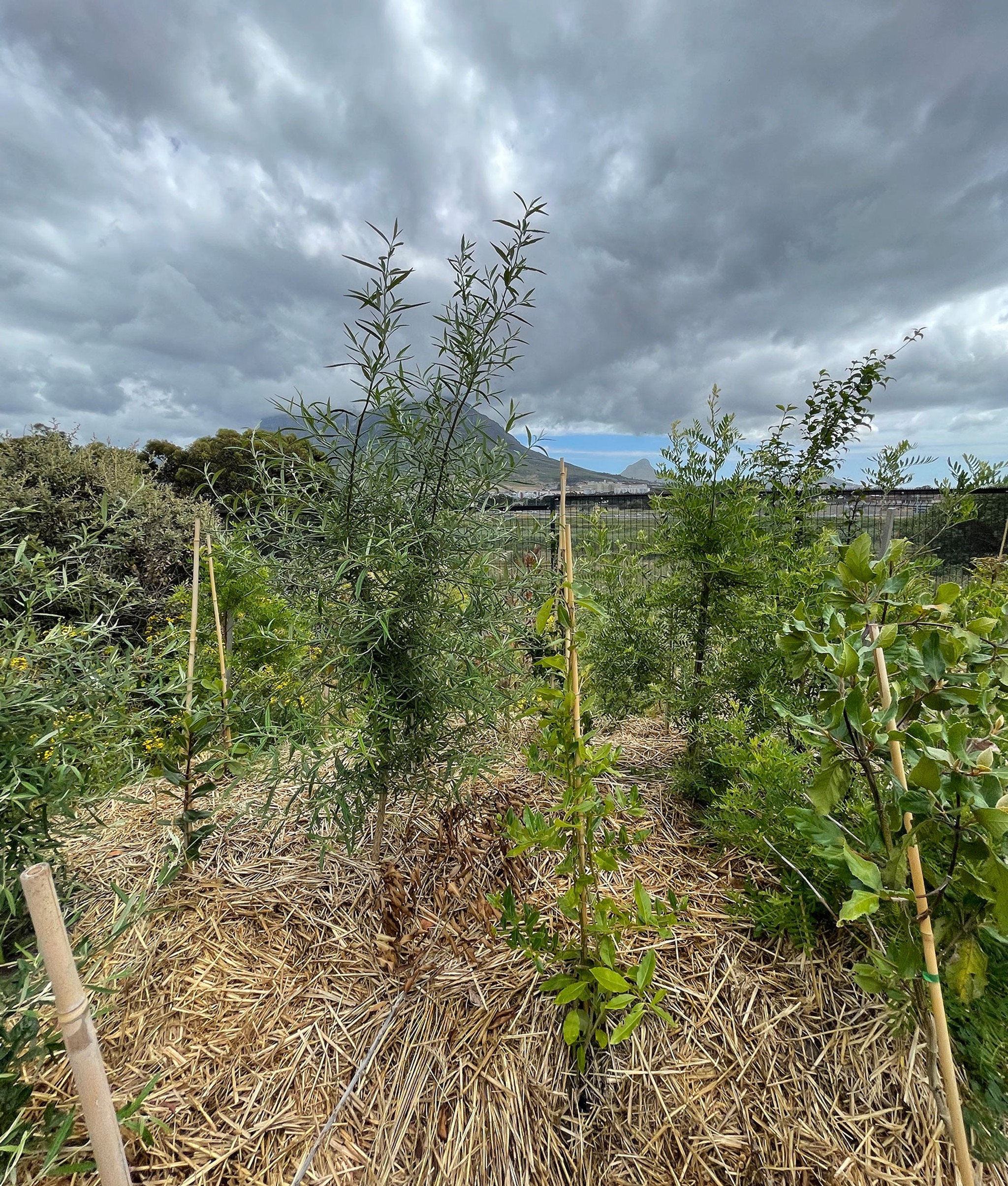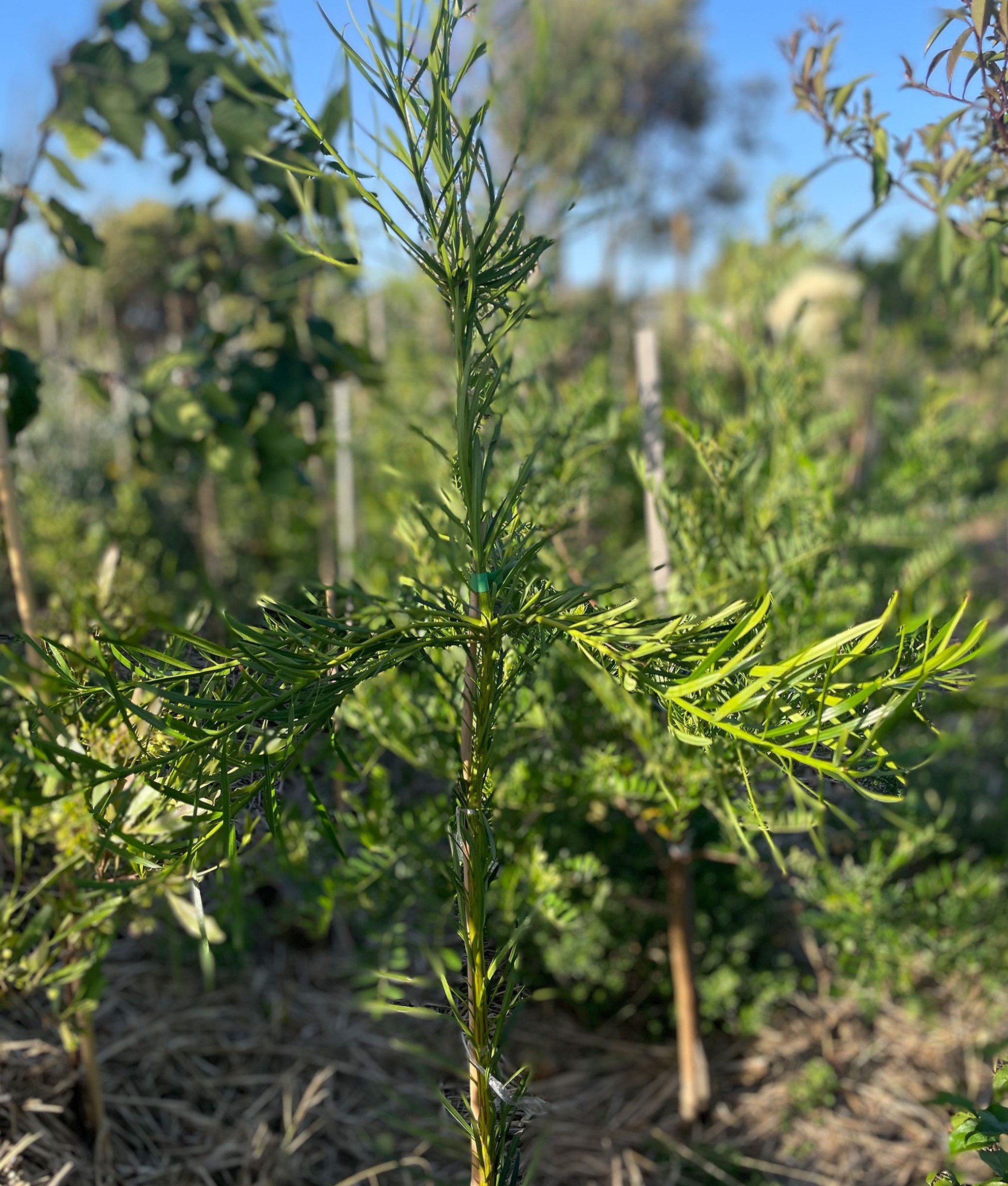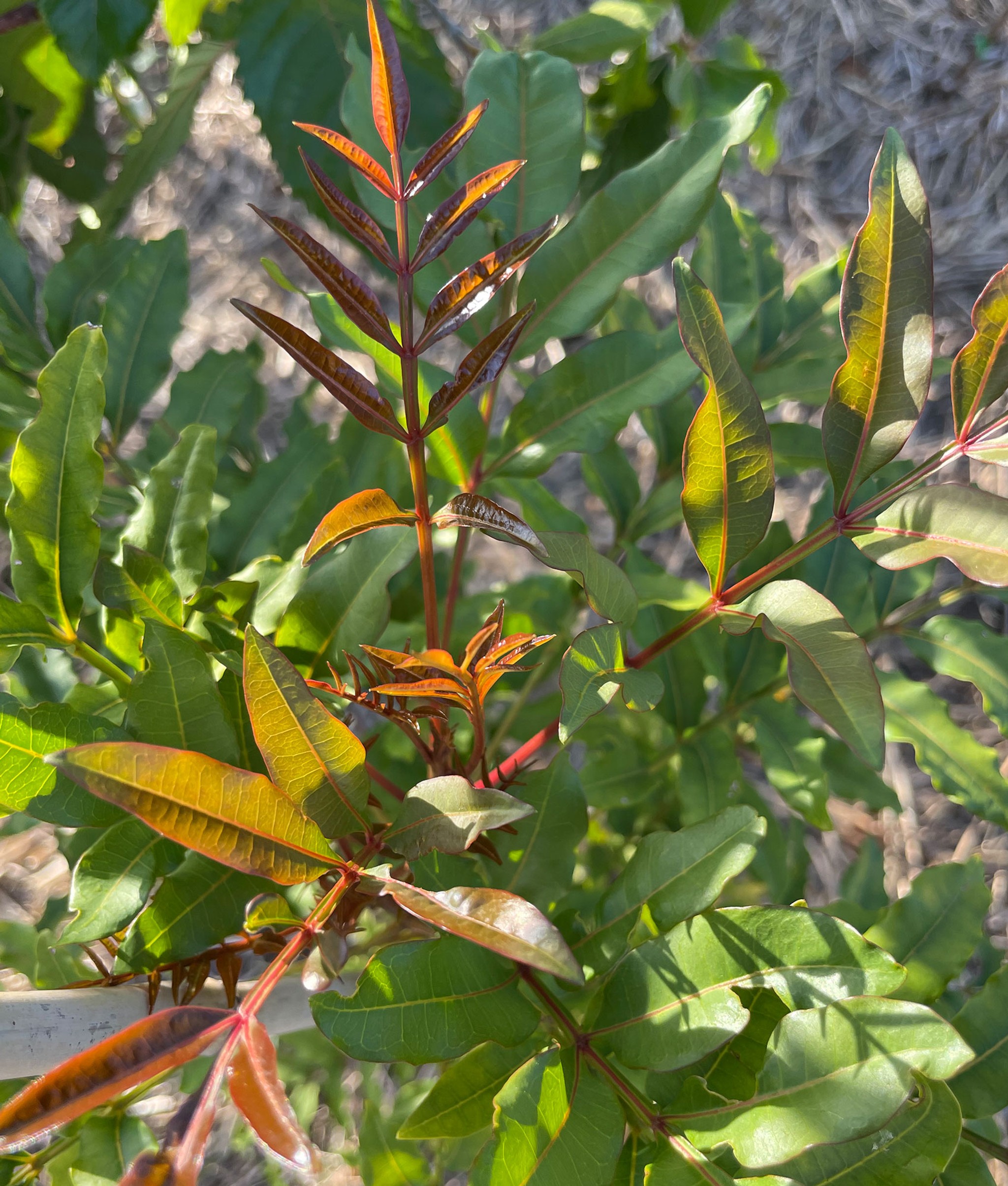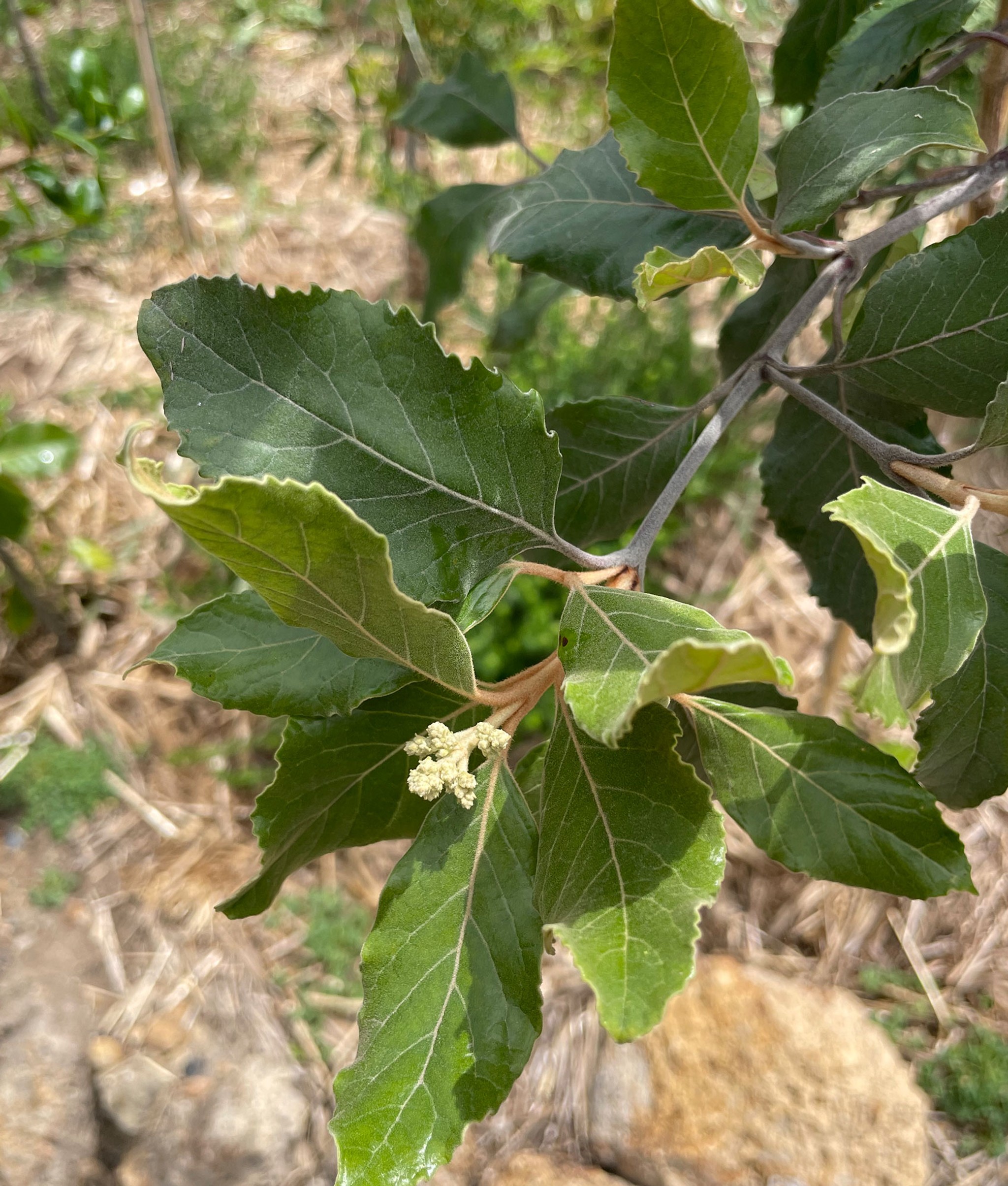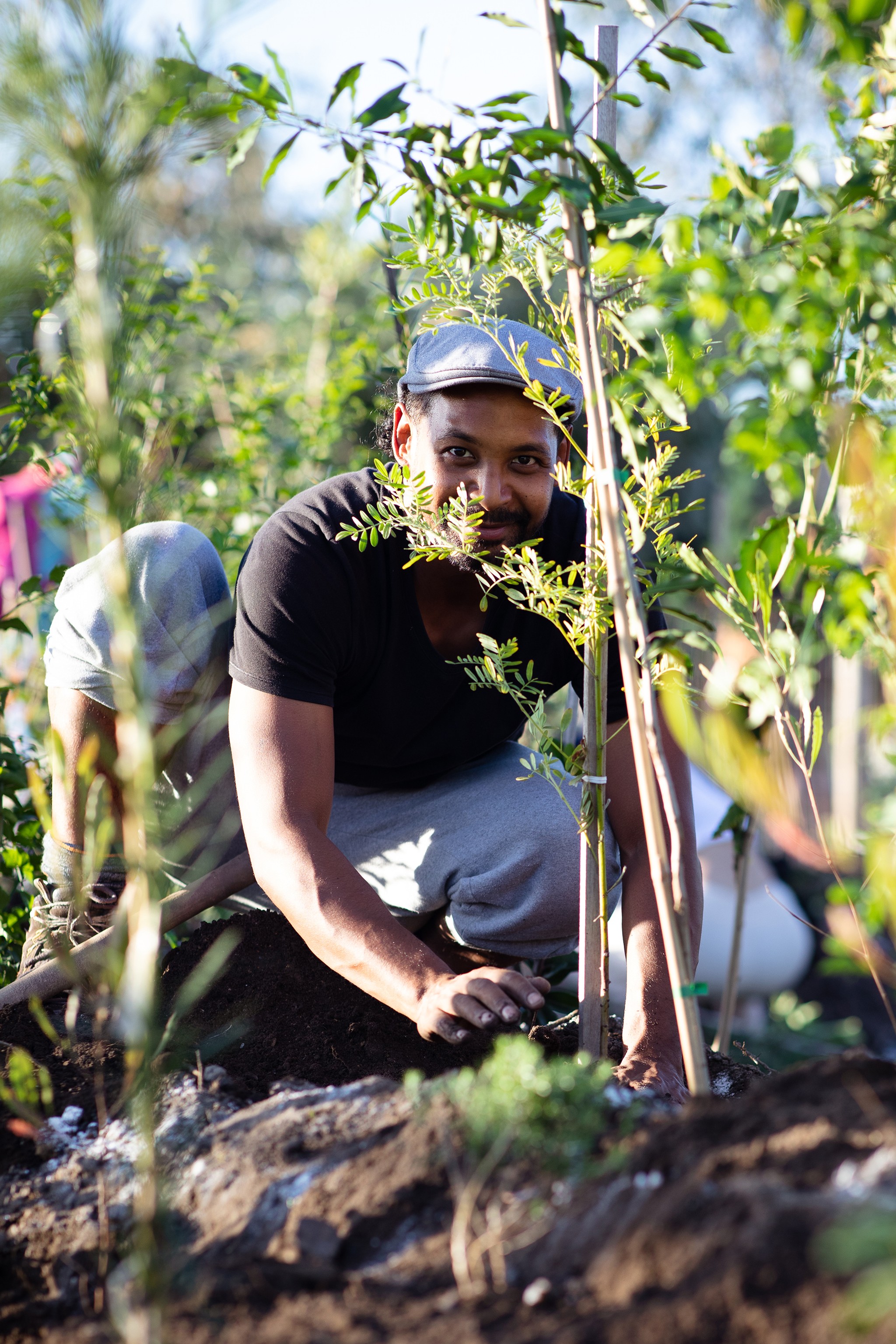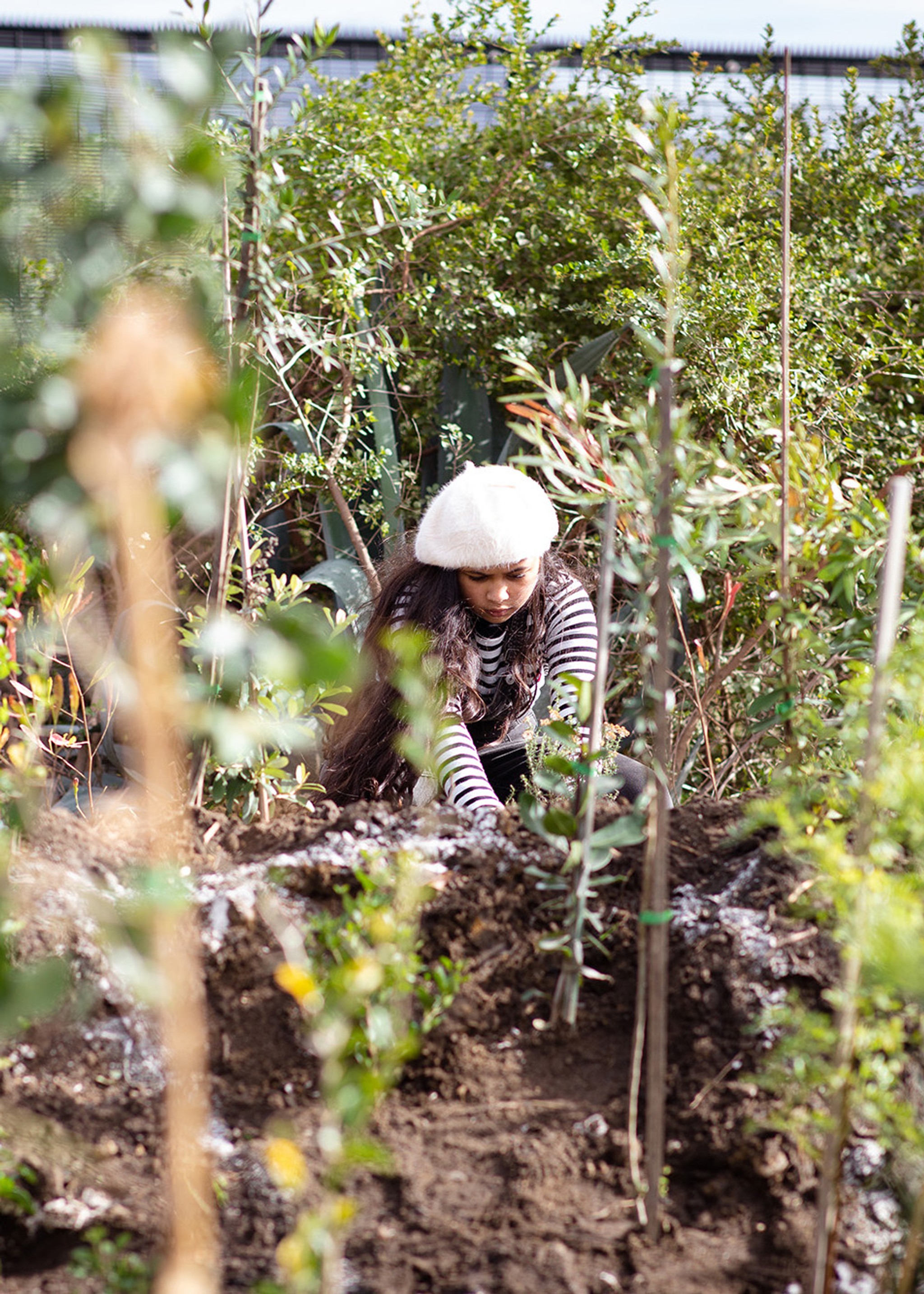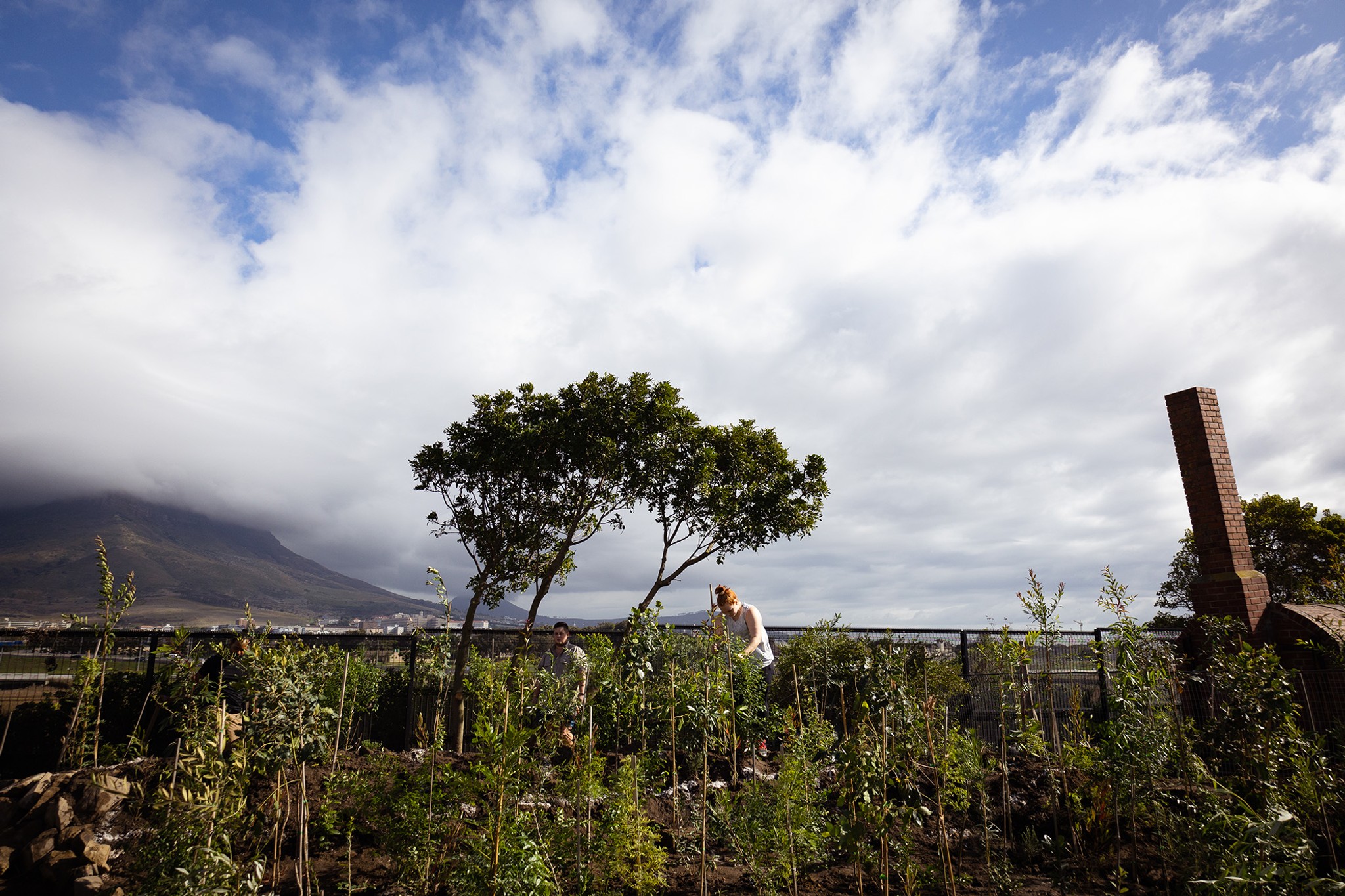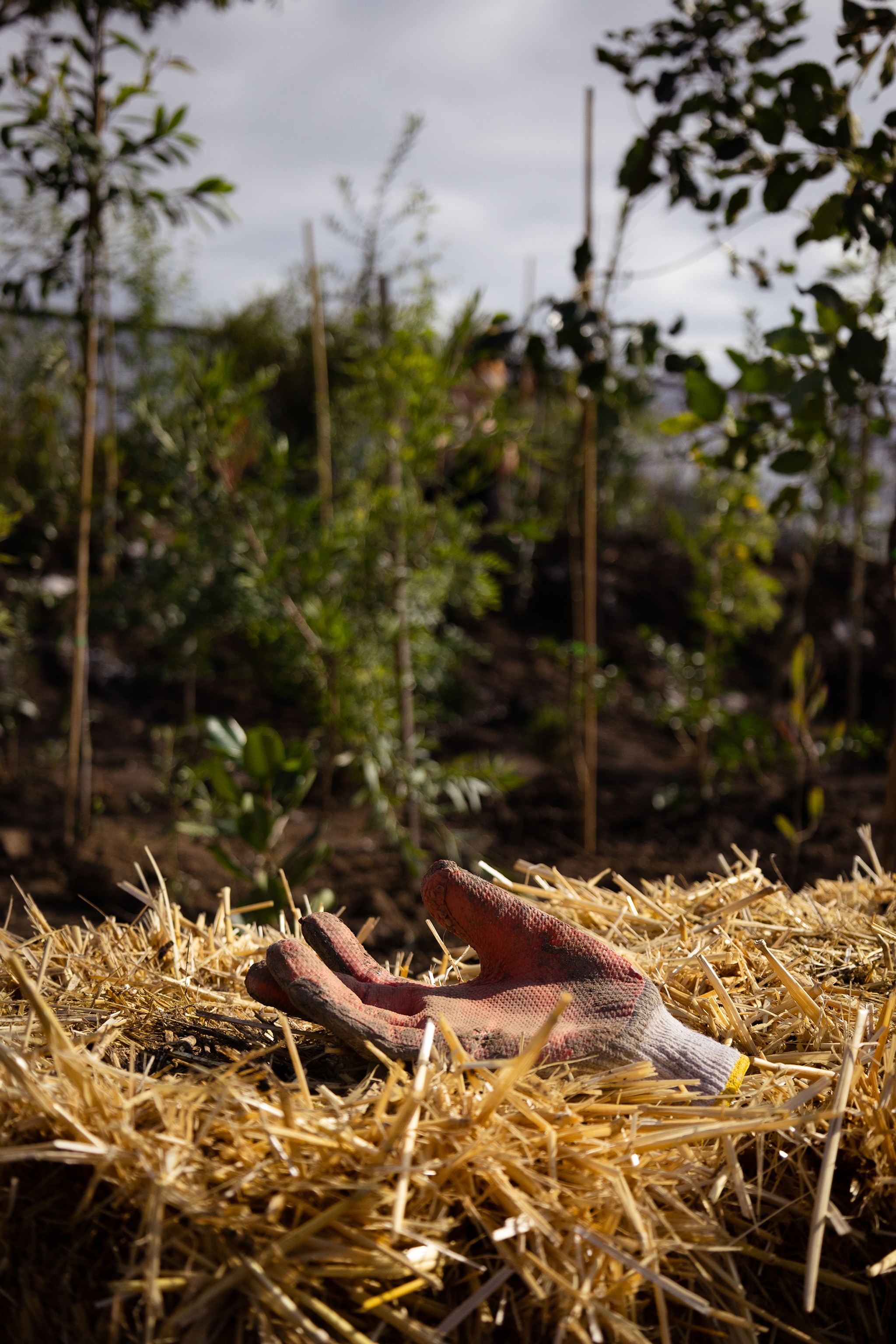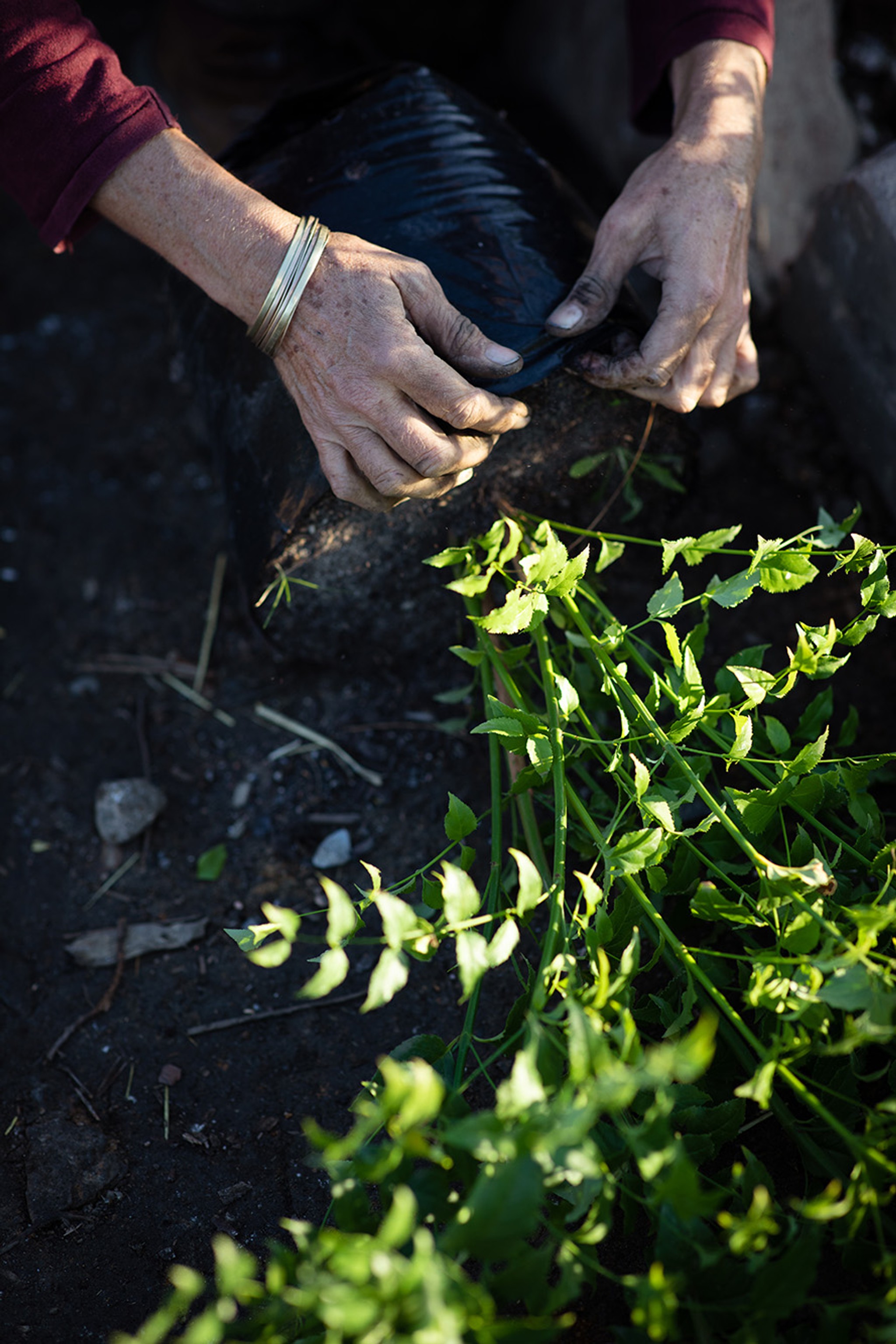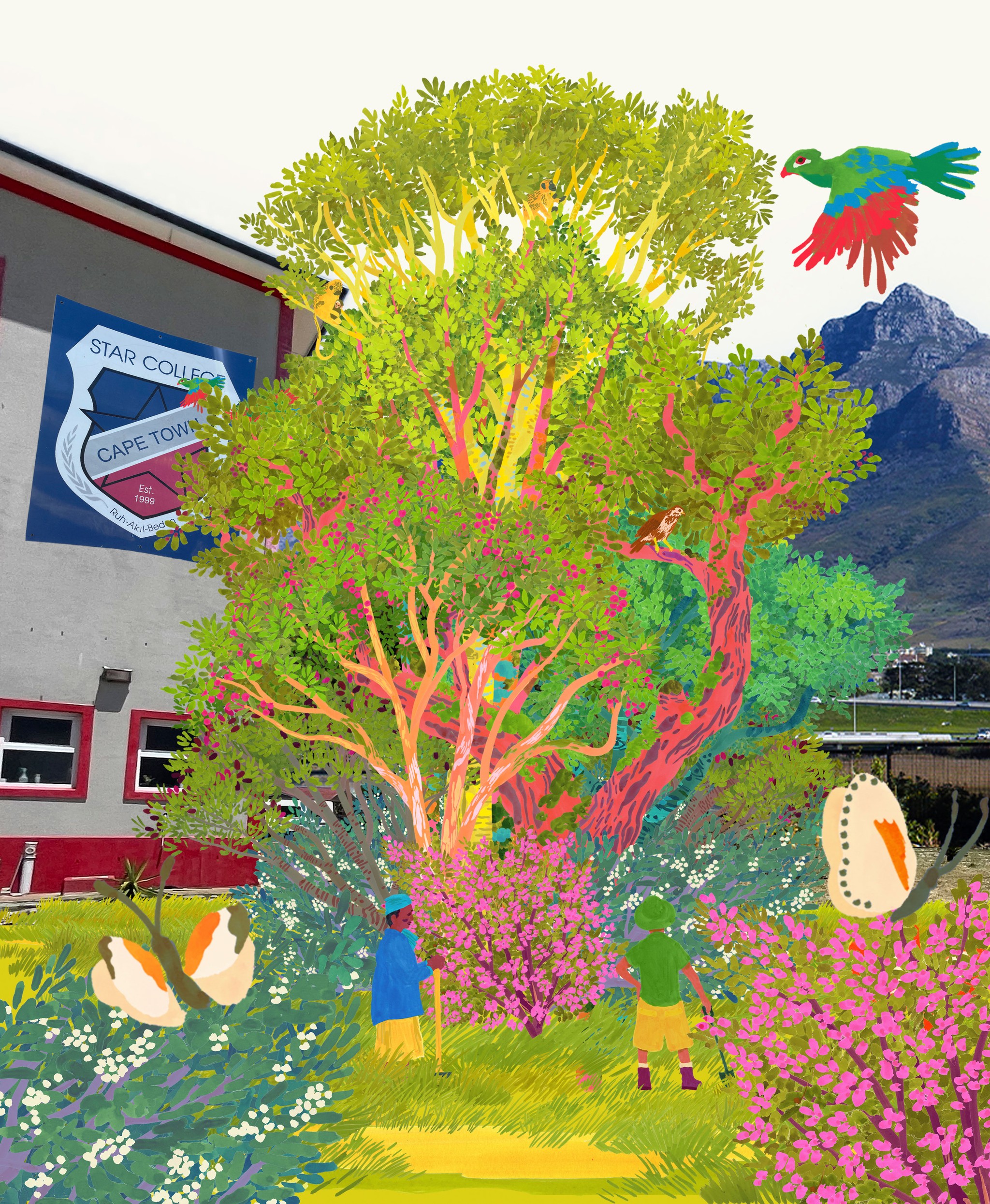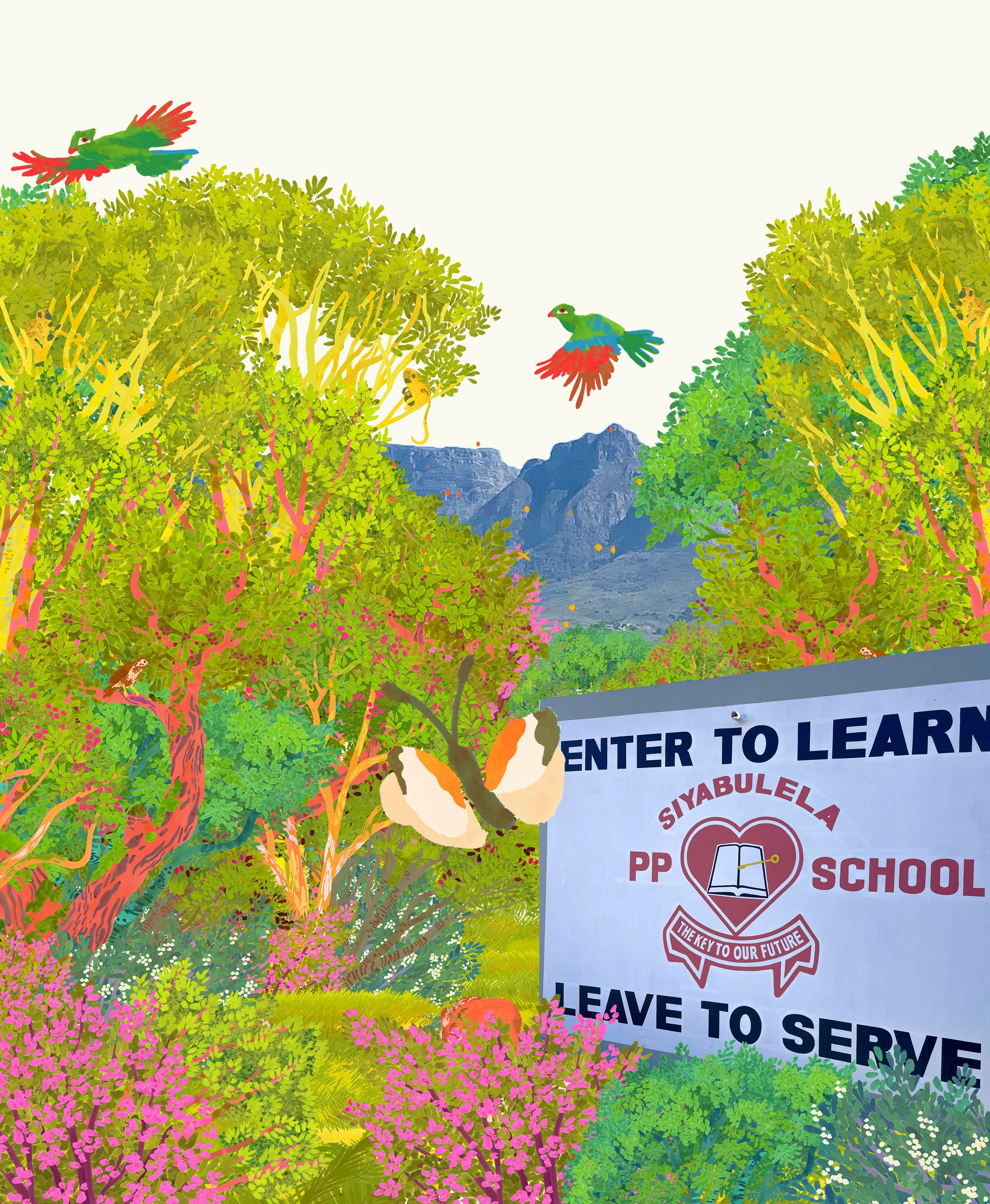Khoi First Nations Forest
Preserving the traditions of the Khoi tribe.

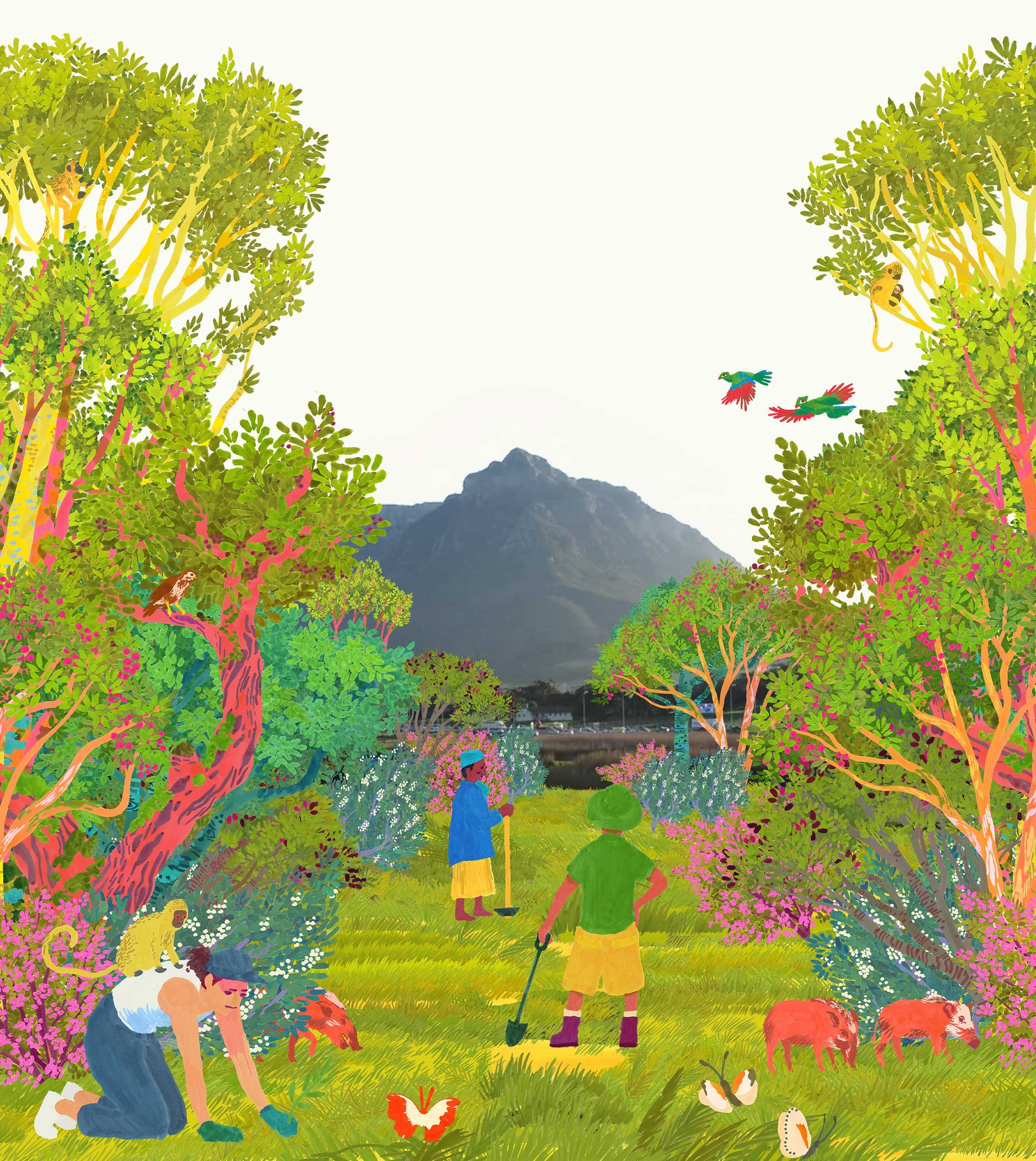
0
Trees
0
Square Meters
0
Native Species
Khoi First Nations Forest is a collaboration with the First Nations people, indigenous South African community. Planting a forest has reconnected community members with native tree species from the neighboring Table Mountain.
This forest is a local landmark and serves the broader community by educating visitors on endemic tree species, biodiversity, and the benefits of rewilding urban spaces in South Africa, where land remains a highly contested and complex issue.
Forest Maker
Aghmad Gamieldien


Forest Partner

Forest Report: 2024
0 Years
Forest Age
0%
Survival Rate
0m
Average of Tallest 3 Trees
Cape Dwarf Chameleon has become a common sighting! This creature is endemic to Cape Town. The forest is doing well. It has become extremely dense in most parts. The canopy has started to block out the sun, allowing for the forest floor to remain cool.
Biodiversity Notes:
Forest Report: 2023
0 Months
Forest Age
0%
Survival Rate
0m
Average of Tallest 3 Trees
This forest has begun to settle in and take root. Most parts of the forest are so dense that you can no longer see through to the other side. The Khoi First Nations Forest has attracted approx 200 visitors over the past year, which has brought in a small income for the up keeping of the First Nations "Kraal".
The forest has truly become a wild zone of the Kraal where non-shy tortoises can be heard and seen moving around in the forest, while a specific mole snake has been spotted frequently on its favourite spot, curled up and hidden under the straw. Aphids, ants, butterflies, and bees are the first insects seen and are still present in the forest on a daily basis. Various flocks of birds fly through and make a pause in the forest on a daily basis, especially in the morning.
Biodiversity Notes:
Forest Report: 2022
0 Months
Forest Age
0%
Survival Rate
0m
Average of Tallest 3 Trees
At 6 months, this young pocket forest is making great progress. Growth is steady and the forest is certainly benefitting from regular watering, particularly as it enters summer in South Africa. The Cape Holly (Ilex mitis) is the tallest species currently at 197cm. This specimen has a girth of 3.2cm at the base. Some of the sand olive (Dodonaea viscosa) trees are already flowering too.
Biodiversity Notes:
The forest is buzzing with activity; it is adjacent to over ten Western Cape Honey Bee hives (Apis mellifera capensis Escholtz). The bees are moving through parts of the forest on a daily basis. Numerous unidentified insects, aphids and ants are inhabiting the forest, including the Cape lappet hairy worm (Eutricha capensis). Various birds have been observed, including Guinea Fowl (species unidentified) and the Cape white-eye (Zosterops virens capensis). Lastly, a black and orange butterfly, thought to be an African monarch (Danaus chrysippus), has also been seen in this pocket forest.
Planting: May 2022
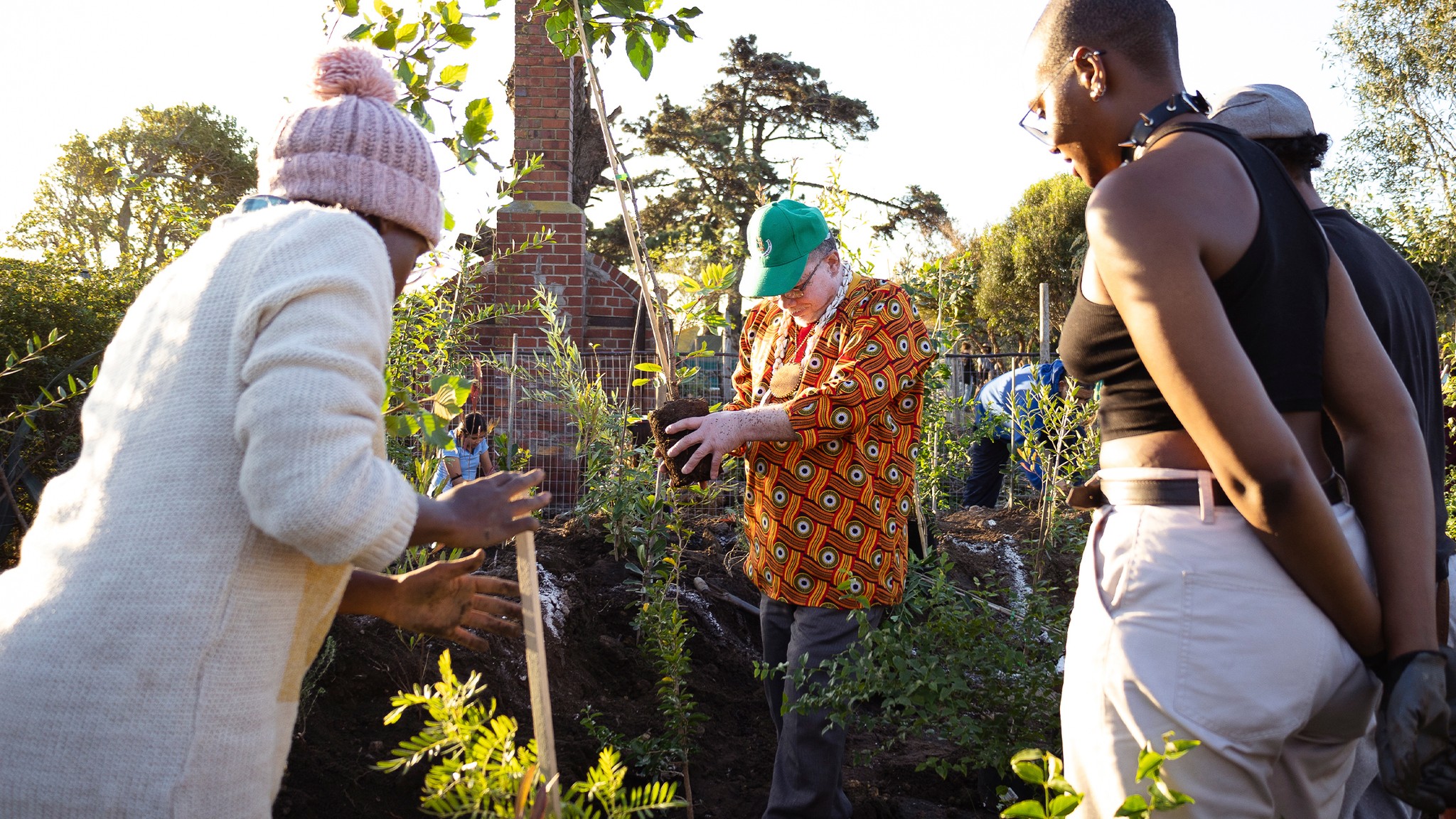
Why the Khoi First Nations Forest?
The Goringhaikona kraal (a traditional, circular enclosure and settlement) at the Oude Molen Eco-Village is a cultural and heritage site where this first nations tribe uphold their practices. It is the last remaining Khoi kraal in Cape Town and Khoi First Nations Forest is located adjacent to it. Indeed, the forest has a circular design, mirroring the shape of the kraal.
The forest contributes to the overall physical and mental wellbeing of the tribe. It also helps to preserve vital traditions and ensure indigenous knowledge is celebrated well into the future.





















